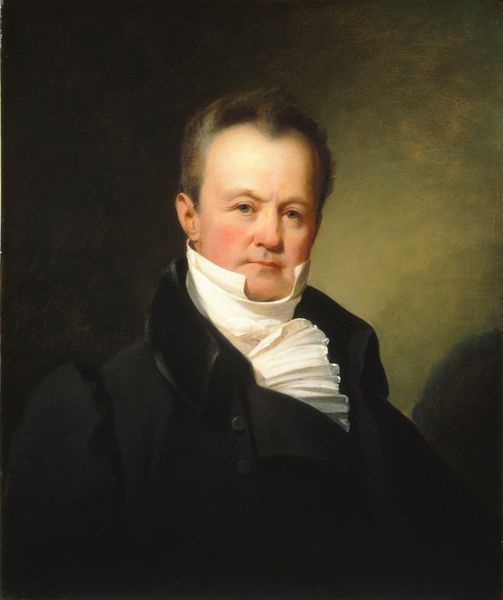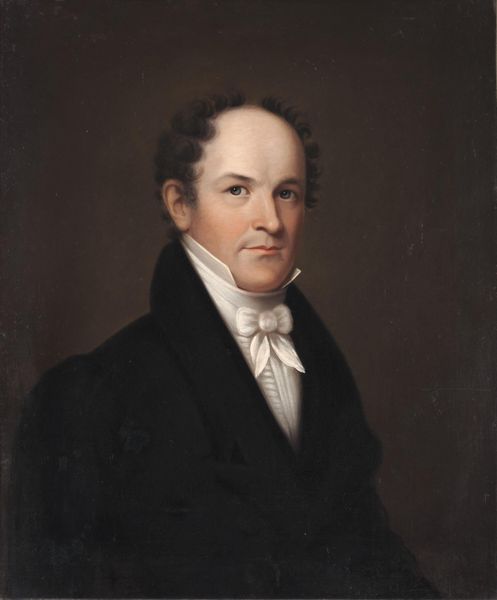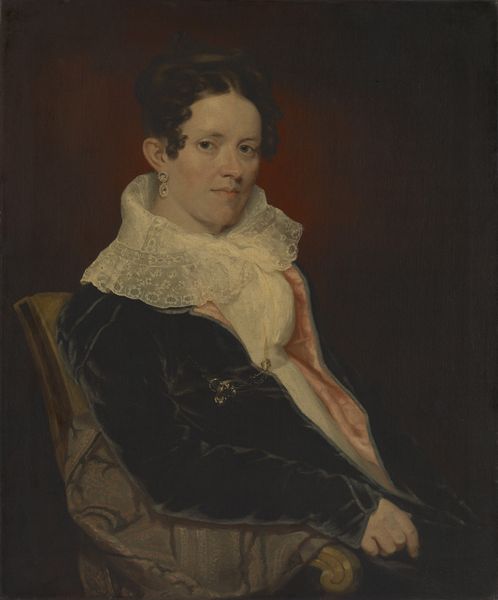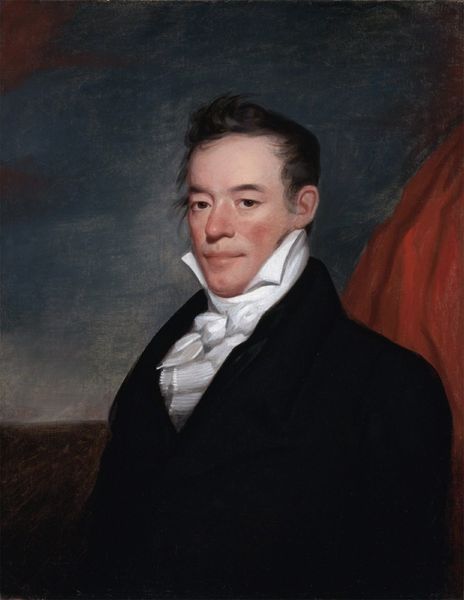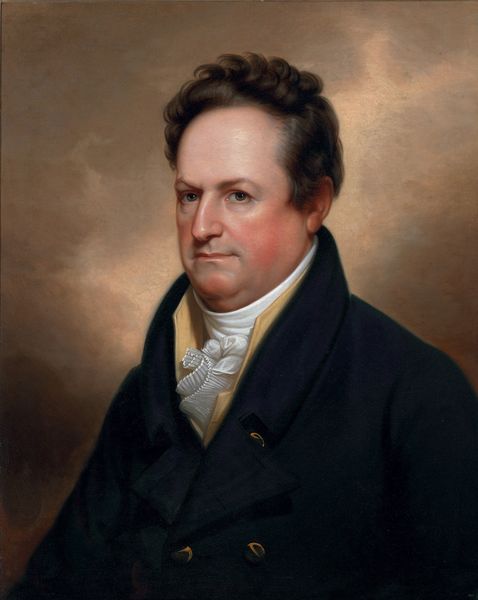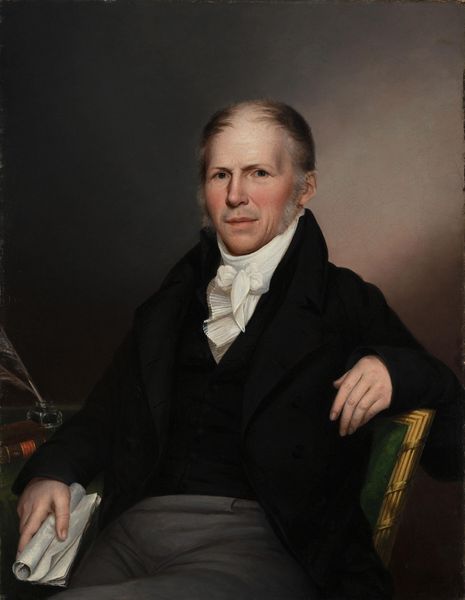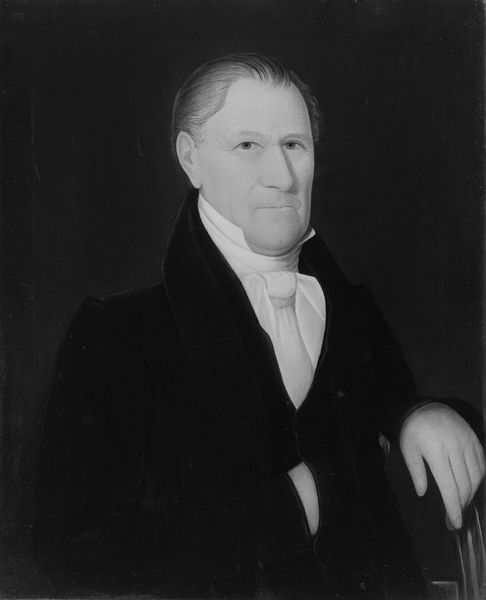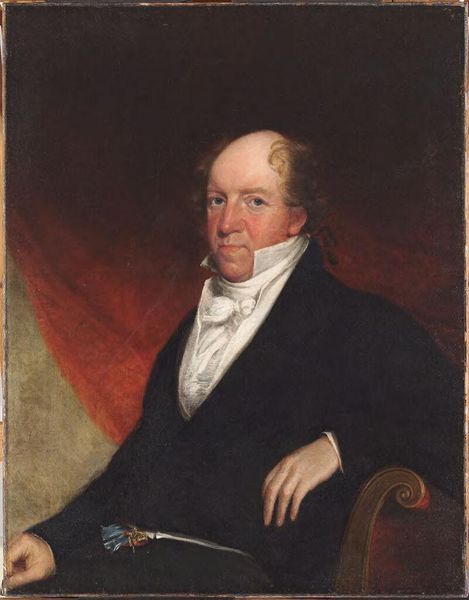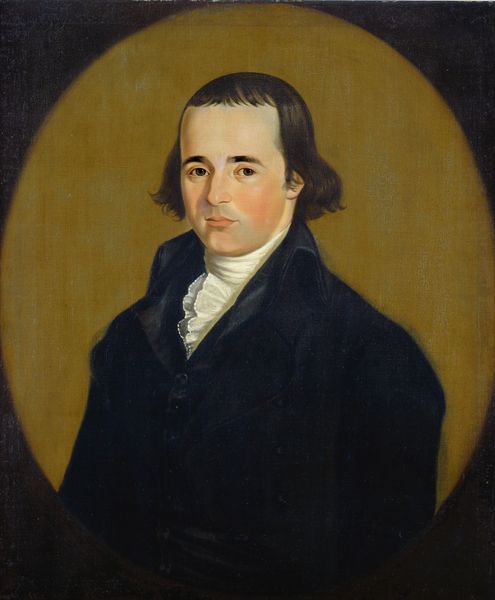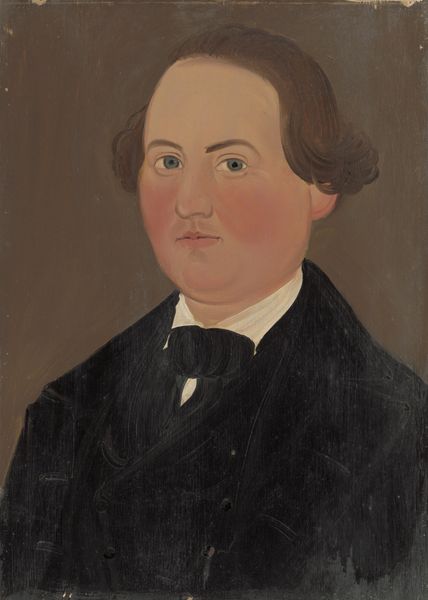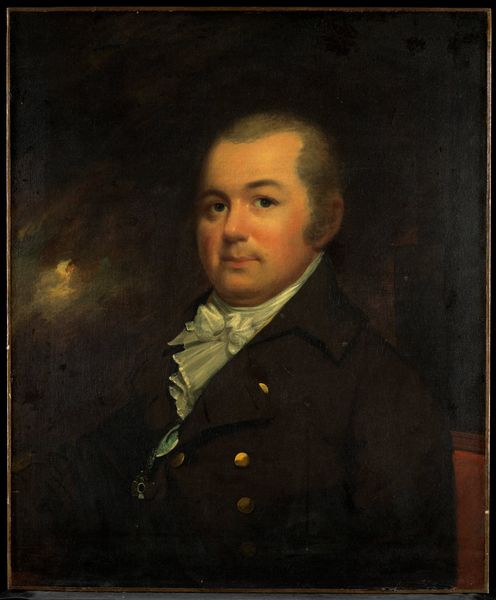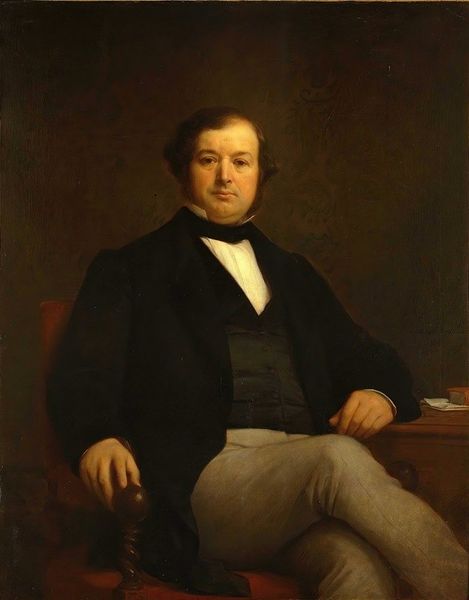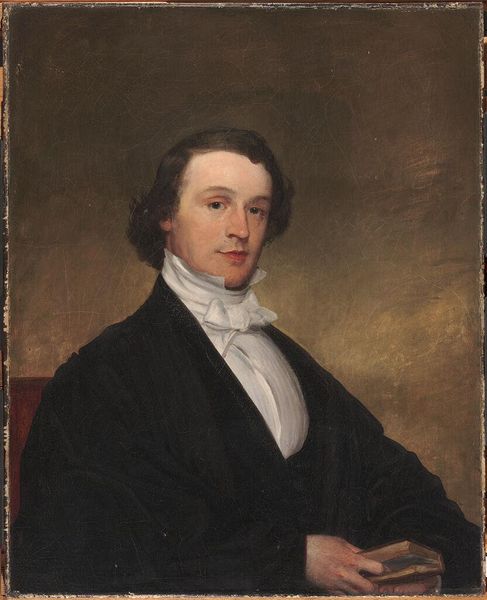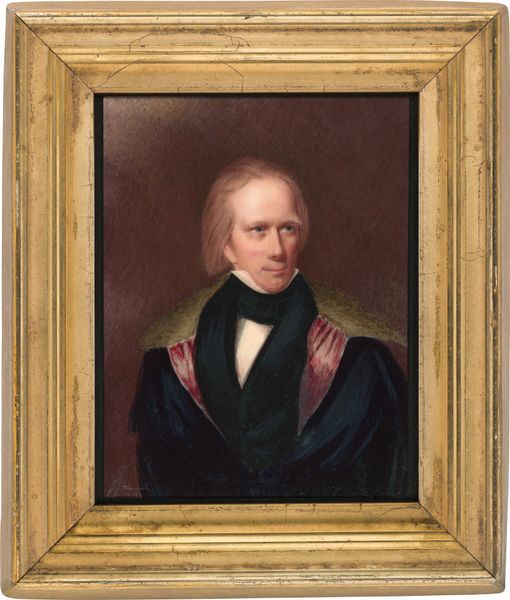
painting
#
portrait
#
low key portrait
#
portrait image
#
portrait
#
painting
#
portrait subject
#
portrait reference
#
romanticism
#
history-painting
#
facial portrait
#
academic-art
#
portrait art
#
portrait character photography
#
fine art portrait
#
realism
#
celebrity portrait
Copyright: Public domain
Samuel Morse painted this portrait of De Witt Clinton in the United States, likely in the 1820s. Clinton was a major political figure in New York, and this image reflects the social conditions that shaped artistic production at the time. In the early 19th century, portraiture was deeply connected to the social and political elite. Morse's painting commemorates Clinton's role in shaping the state. The visual codes are clear: Clinton’s gaze is directed off to the left, suggesting a man of vision and purpose, a statesman looking to the future. The dark, formal attire represents a certain sobriety and respectability. Morse’s portrait style references the conventions of European portraiture, which lent status to the sitter. Understanding this portrait requires that we delve into the political history of the time, looking at the dynamics of patronage and power. Only then can we truly understand the public role of art and the politics of imagery.
Comments
No comments
Be the first to comment and join the conversation on the ultimate creative platform.
